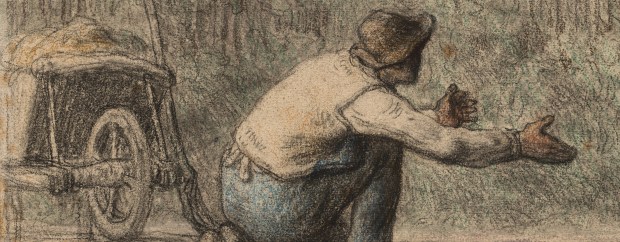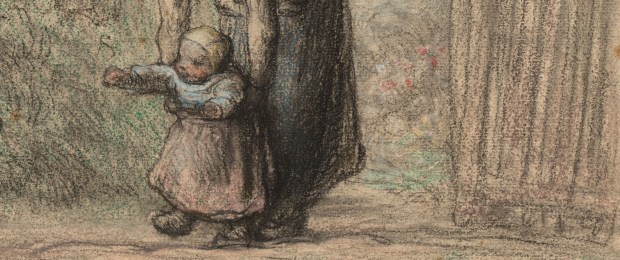Lenten Campaign 2025
This content is free of charge, as are all our articles.
Support us with a donation that is tax-deductible and enable us to continue to reach millions of readers.
St. Augustine, in his Confessions, exclaims, “Great is the power of memory, a fearful thing, O my God, a deep and boundless manifoldness.” I wonder if, in writing this, he was thinking about his son Adeodotus. Perhaps he was thinking back to when his son was young and he was shaken by how strong the memories were of being a new father. Perhaps those memories felt more real and pressing than he expected.
That’s the way fatherhood is. It imprints love in the memory that remains ever vital because, as inner expressions of the fatherly heart, they are changed into a man’s very lifeblood.
That has been my experience, at least. To me, fatherhood and memory are so intertwined they cannot be taken apart. The memories of when my children were young are some of my strongest mental images. I have no recollection of what I said or did at my wedding reception (it all went by too fast), or what I did on the first day of college (too overwhelming), or the first time I drove a car (my father probably remembers, though), but I very much remember cheering my daughter on as she took her first wobbly steps as I sat on the floor of our modest starter-home a few decades ago.
I still see her chubby smile, feel the floor under me, and the heat of the sun on my skin as it came through the south window of the living room.
The romance of "First Steps"
The powerful memory in the mind of a father is why Jean-François Millet’s pastel drawing titled "First Steps" is so very effective. As an artist, Millet was known for working from memory. He would often make hasty sketches of his models and scenes, focusing mostly on gaining an impression of the colors and effects, and finish the canvasses later.
Art books label Millet’s style as “realist,” but to my eye he very much maintains the romance of his subjects. Painting from a mental picture, he discards unimportant details and focuses on those that deserve remembering. According to a former student, Millet said that those things “which touched his heart he retained.”
The way the sun sets on a grassy field in June, a farmer and his wife bowing their heads for the Angelus, a rainbow arcing through a saturated sky over a dirt road: this is what Millet strives to pain. It’s the romance of everyday life, the things we don’t want to forget.

Capturing the essence of fatherhood
In "First Steps," he recalls the romance of fatherhood. Under his expert touch, the solidity of that single, hesitant moment buried in the memory of every father gathers strength until it draws out to eternity. Millet stops time and allows us to linger.
It was unusual at that time for an artist to turn farmers and peasants into heroic subjects of fine artwork, but Millet thought there was something special about them. The sensitivity with which he depicts them reveals a profound understanding of their inner nobility. "First Steps" focuses on just such an ordinary, workaday scene. A child is about to walk for the first time, straining forward in the arms of her mother.
Opposite, her father has dropped his gardening tools and is crouching in an undignified manner with a knee in the dirt. He’s focused not on ostensibly masculine pursuits but, rather, has eyes only for his child. It is his task to catch her and hug her in congratulations. Fatherhood has brought tender gentility to this man with callouses on his hands and dirty sleeves. This tender love, Millet shows, is nobility.
It is the perfect picture of fatherhood. The man is, as Van Gogh would later comment after painting a copy of "First Steps," “familiar and yet solemn.” He is familiar because that exact scene is burned in the memory of every father. He is solemn because fatherhood endows a sacred vocation.

Memories and sadness
And yet, when I explore those memories, it’s always with a twinge of sadness. The first steps have been taken and my little girl is now a teenager. I have a vivid recollection of many firsts. Strapping her into a car seat when she was a day old and we took her home, we drove away with our little miracle completely unprepared to be parents. I remember putting her into a bumblebee outfit for her first halloween, learning to give her a bath, feeding her a first spoonful of solid food that she spit all over me. To her, those are unremembered events of the distant past, but for me they may as well have happened yesterday.
Nostalgia is so real in our minds, the way it compresses time to pull and push it forward, that it literally becomes a homecoming into the reality of the event itself. Memory contains the beauty of our lived experience and the lasting meaning of our lives. Memory also causes pain because, even as we are able to inhabit experiences long-past, time continues to flow.
Perhaps this is why the theologian Hans Von Balthasar asks, “You sense Time and yet have not sensed [Christ’s] Heart?” It’s a question that gets to the suffering love residing at the heart of existence. Life is so painfully beautiful, love demands so much of us, but would we have it any other way? Would I ever want to be anything other than the father to the children God has given me?
Fatherhood is a procession of love from father to child. We teach them to walk and are so proud when they take those first steps. But as hesitant as they are, those steps carry our children away from us. Every single lesson we impart carries them away. They are meant to rise on their own two legs and make their own way through life with grace and joy. Millet has searched his memory and this is the result, the fatherly heart.










